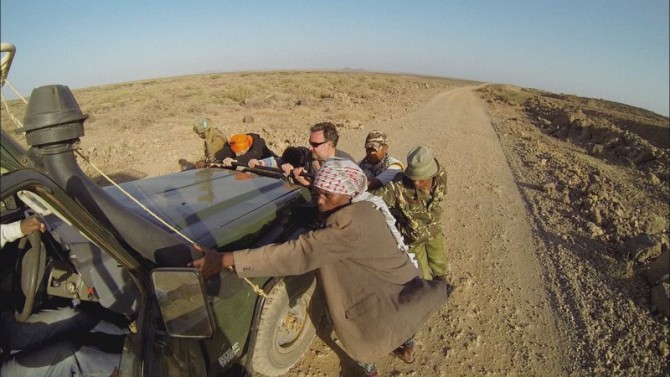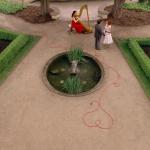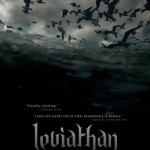By David Pountain
Directed by David Calek and Jakub ZahradnÃcek
In its own, more accessible way, the reality of David Calek and Jakub ZahradnÃcek’s Pirating Pirates holds a playful slipperiness akin to the formally subversive works of recent Iranian cinema from the likes of Jafar Panahi and Abbas Kiarostami. What starts off as a fairly straightforward documentary on the plight of Somali pirates quickly evolves into a complex work of meta-commentary – a shift that comes about as an immediate response to the unusual circumstances that the filmmakers (sometimes inadvertently) bring to light. There’s an overtly improvisational quality to Pirating Pirates’ construct, in that Calek, ZahradnÃcek and their crew’s struggle to make the film is, in itself, a central conflict to the film. A strange, deceptive landscape is revealed through its own navigation, bringing us close to the actual experiences of the filmmakers while undermining the authenticity of their non-fiction medium. In the process, Pirating Pirates suggests that these first-hand experiences may be the closest anyone can come to any kind of truth – which, perhaps paradoxically, makes this about as honest and insightful a depiction of Somali pirates and their relation to the west as you can likely find on the big or small screen.

Pirating Pirates is quick to acknowledge the role of the west in the rise of Somali pirate activity in the 21st century. It’s a claim that the film eventually circles back to in an unexpected way but, for the first few minutes, it provides a respectable basis for the filmmakers’ investigations in Nairobi. The situation gets more complicated when it is revealed that the supposed pirate, Hassan, who agreed to an interview has been nothing more than an actor looking to con the crew out of some money. From here, the narrative splits into a number of closely related directions as the filmmakers try to figure out how they were set up with a fake pirate while, at the same time, looking further into the life of Hassan and continuing to collect information on the real Somali pirates.
As it turns out, Hassan isn’t the only case of Somalians repackaging the pirate life to present to western media. The lines of who is exploiting whom becomes increasingly blurry as journalists and filmmakers from Europe and America pay good money to observe a mock depiction of this dangerous occupation, which they can, in turn, sensationalise to viewers back home. The pirates themselves are ordinary fishermen who originally needed to resort to destructive means as a defence against aggressive poachers but, after the poachers started arming themselves, the fishermen started robbing unwitting boaters to provide for themselves. One individual with first hand experience of the actual pirate life tells us that pretending to be a pirate is nothing to be proud off, expressing an unromanticised regret towards the situation. But, of course, this more sympathetic, sober perspective is not what journalists are being duped into paying for nor what their audiences actually want.

These themes of real life filtered through a lens of entertainment and performance are enriched by the film’s self-reflexive observations. The use of various camera types suggests that maybe there is no singular rendition of any one reality. The famous Picasso quote that “Art is a lie that makes us realise the truth†comes to mind particularly in a scene where a colleague of the filmmakers interviews a man named Adan while being watched with hidden cameras. The crew surreptitiously send their friend a message telling him to try to get Adan to shift position a little so that his face can be clearly seen in their primary camera – a largely aesthetic contrivance but one that probably would allow the situation to be presented with more attractive clarity. Meanwhile, another scene sees the crew arguing about whether the cost of making the trip to see Hassan’s family is worth it for the emotional moment it will grant the final film.
This self-documentation may have come across as distractingly indulgent if the various strands of the film didn’t tie into each other with such remarkable ease. By integrating two different forms of illusion – one perpetrated by savvy con men and the other by our media and filmmakers – Pirating Pirates slyly suggests that maybe the west genuinely prefers the exciting, exoticised fantasy to the more nuanced, less flattering reality. By the time the film has reached its hilarious conclusion, it’s clear that we’re a long way from working out which is which.
Recommended Viewing on FilmDoo:
(UK & Ireland only)









